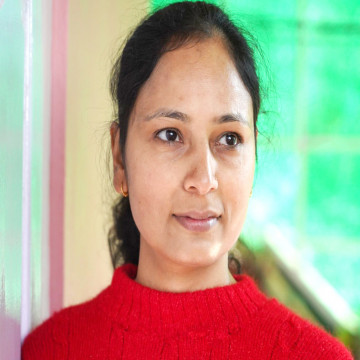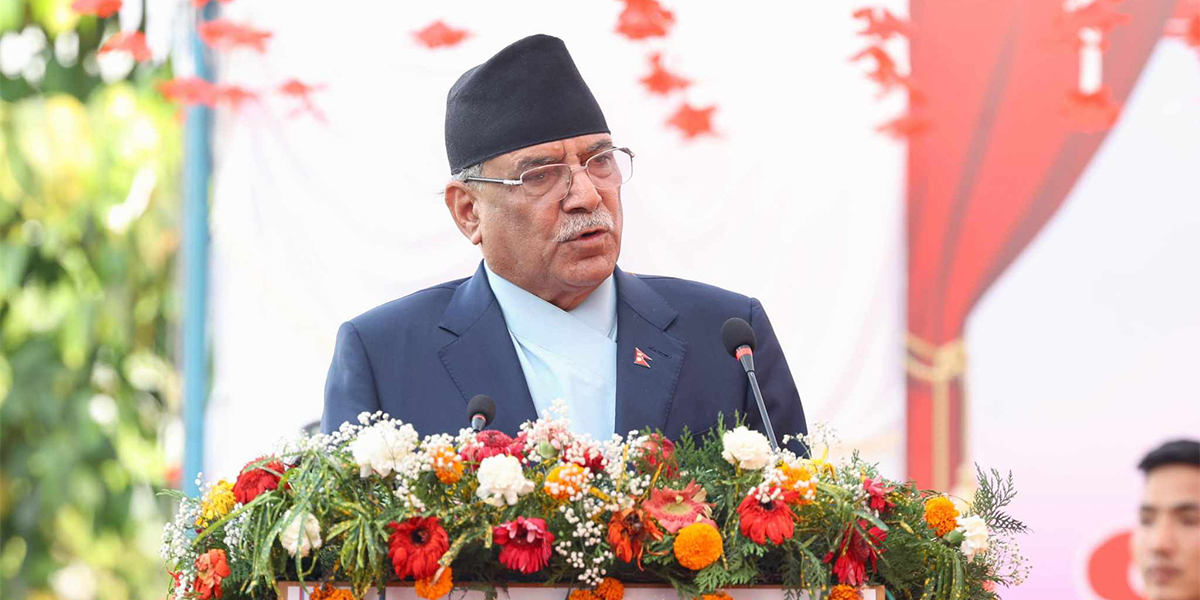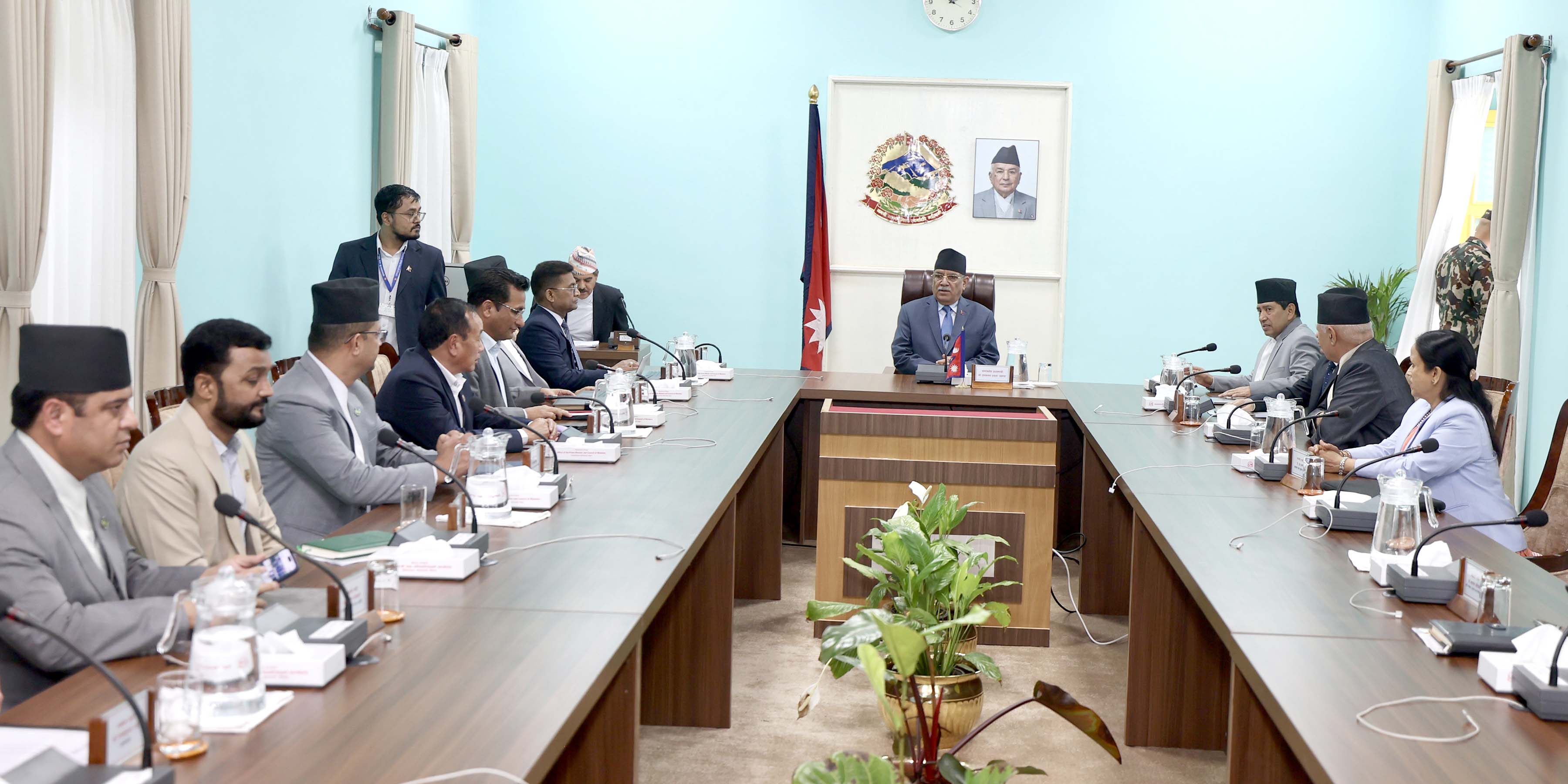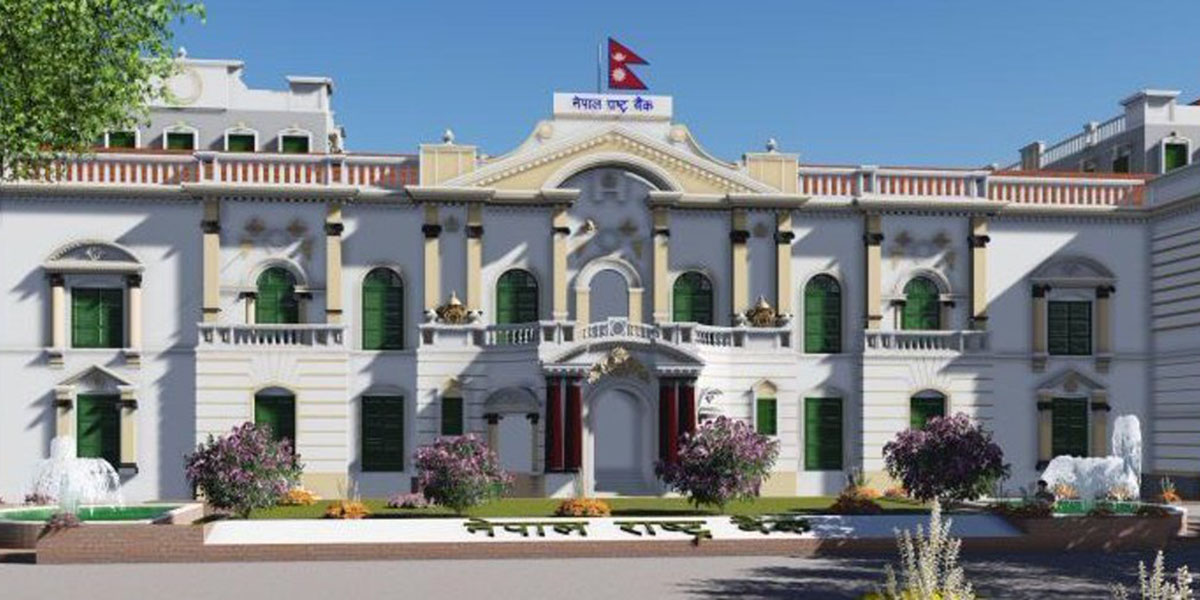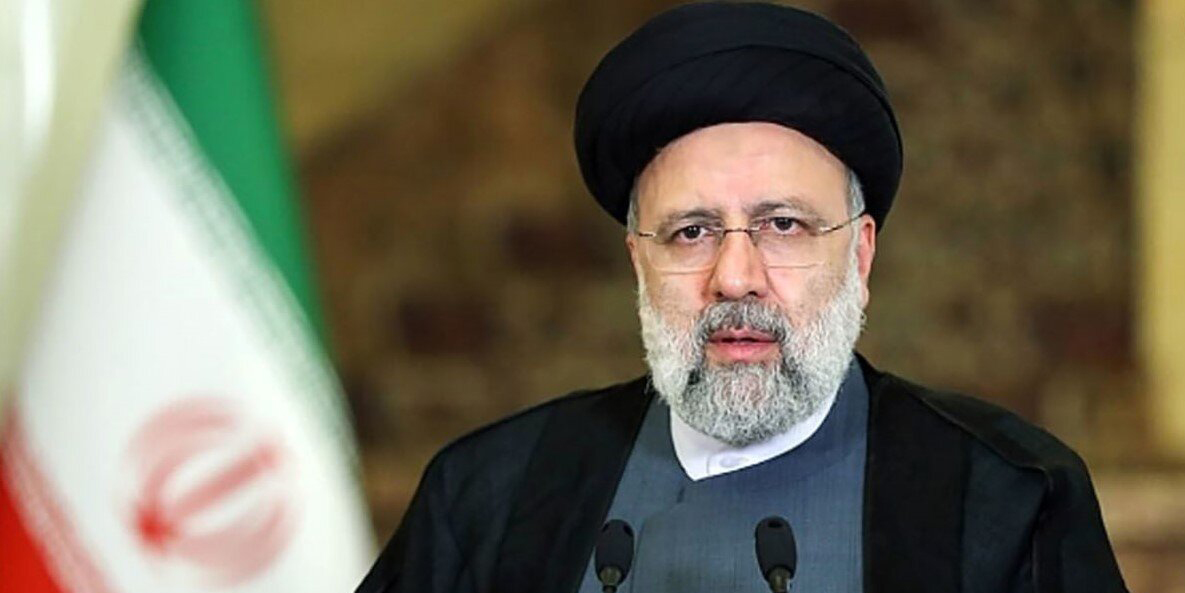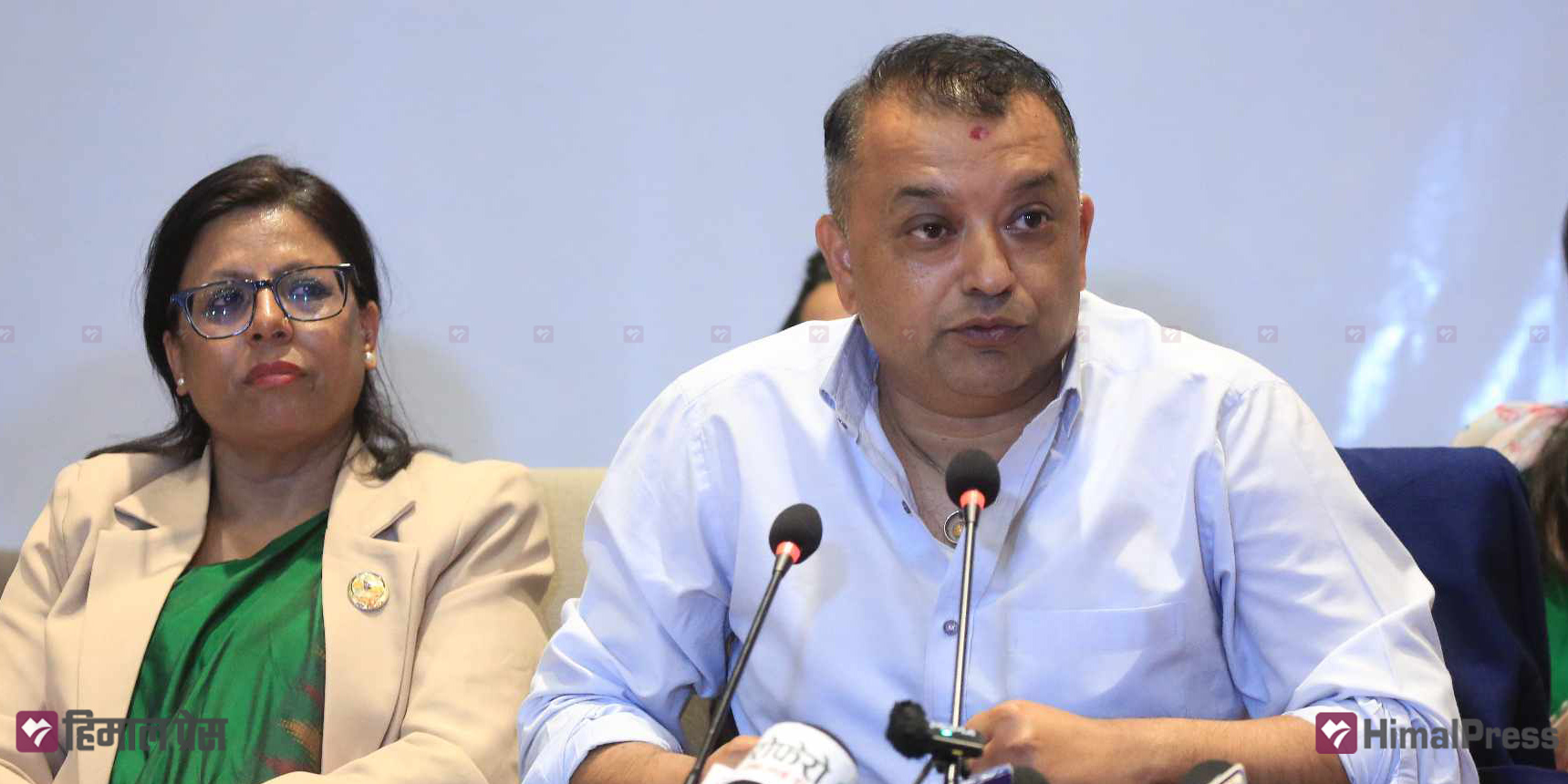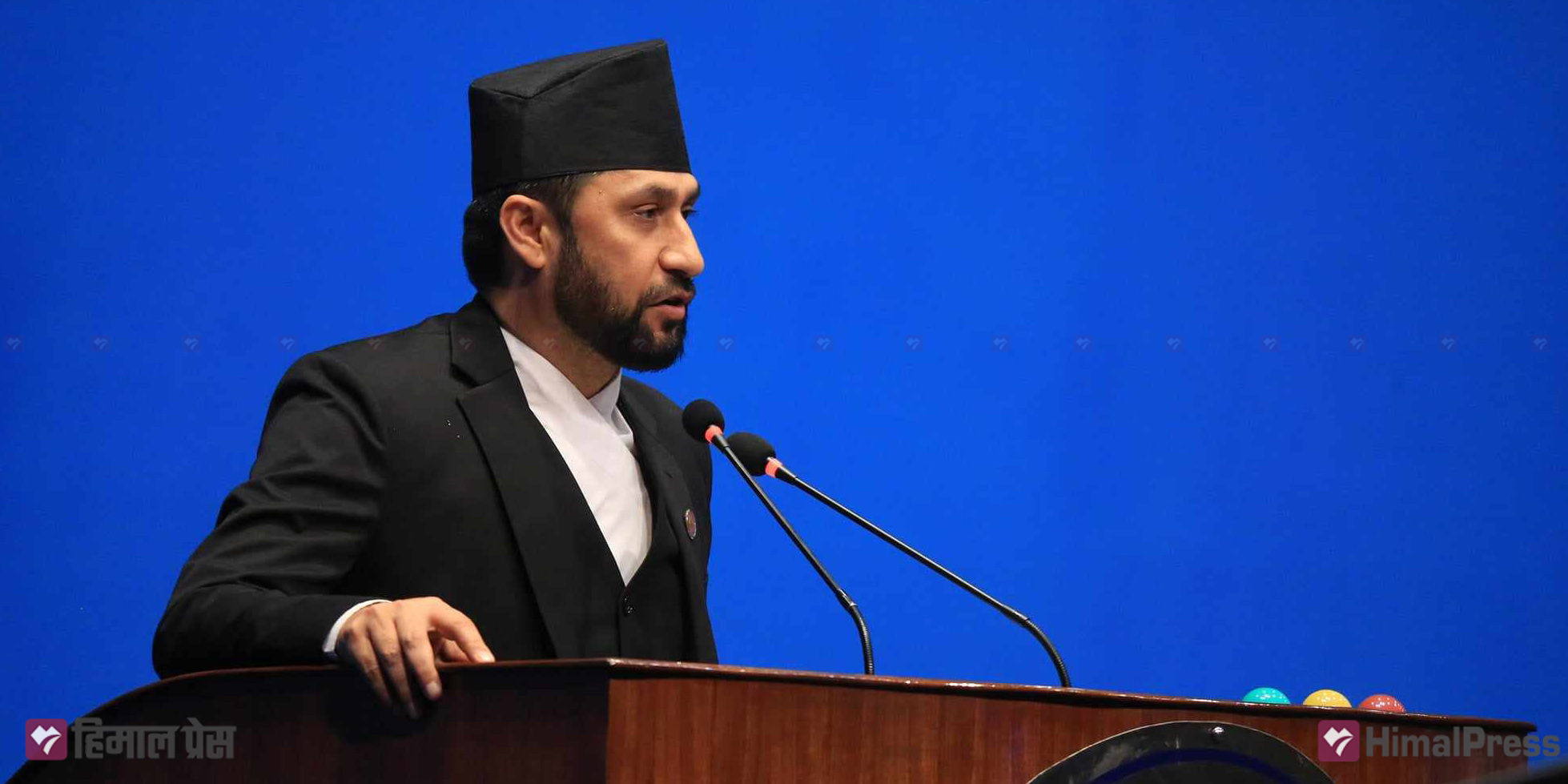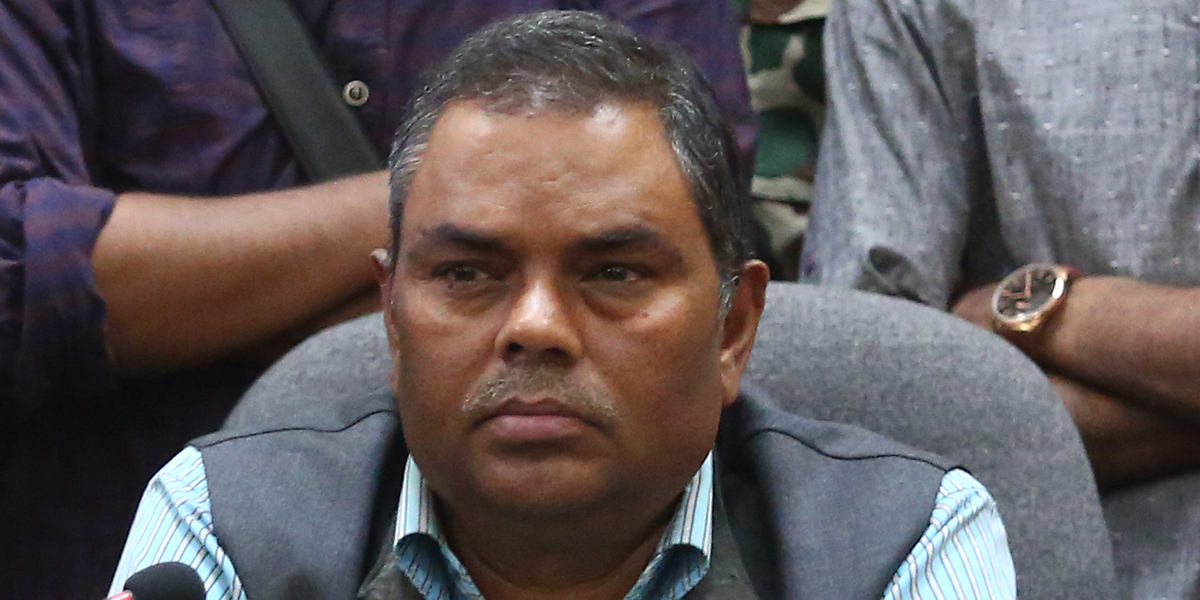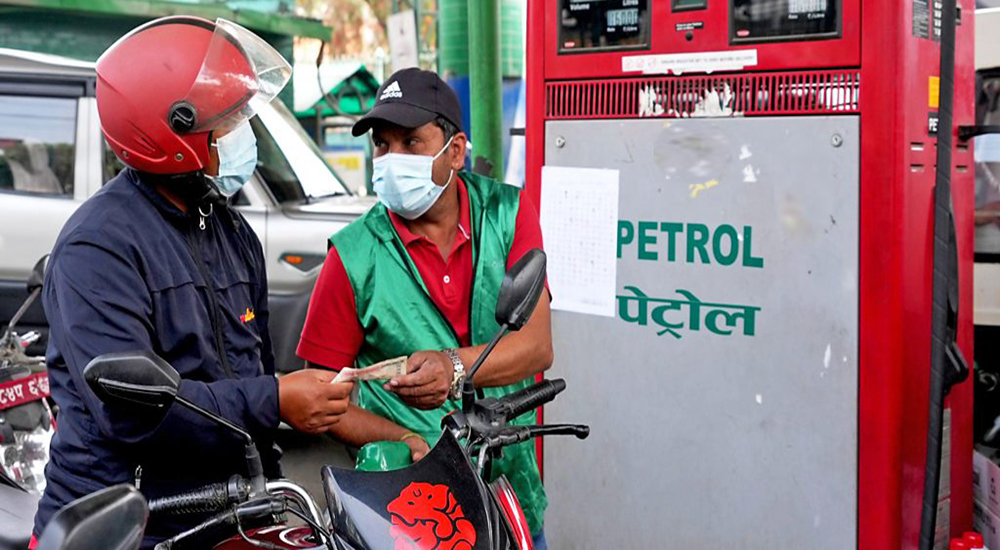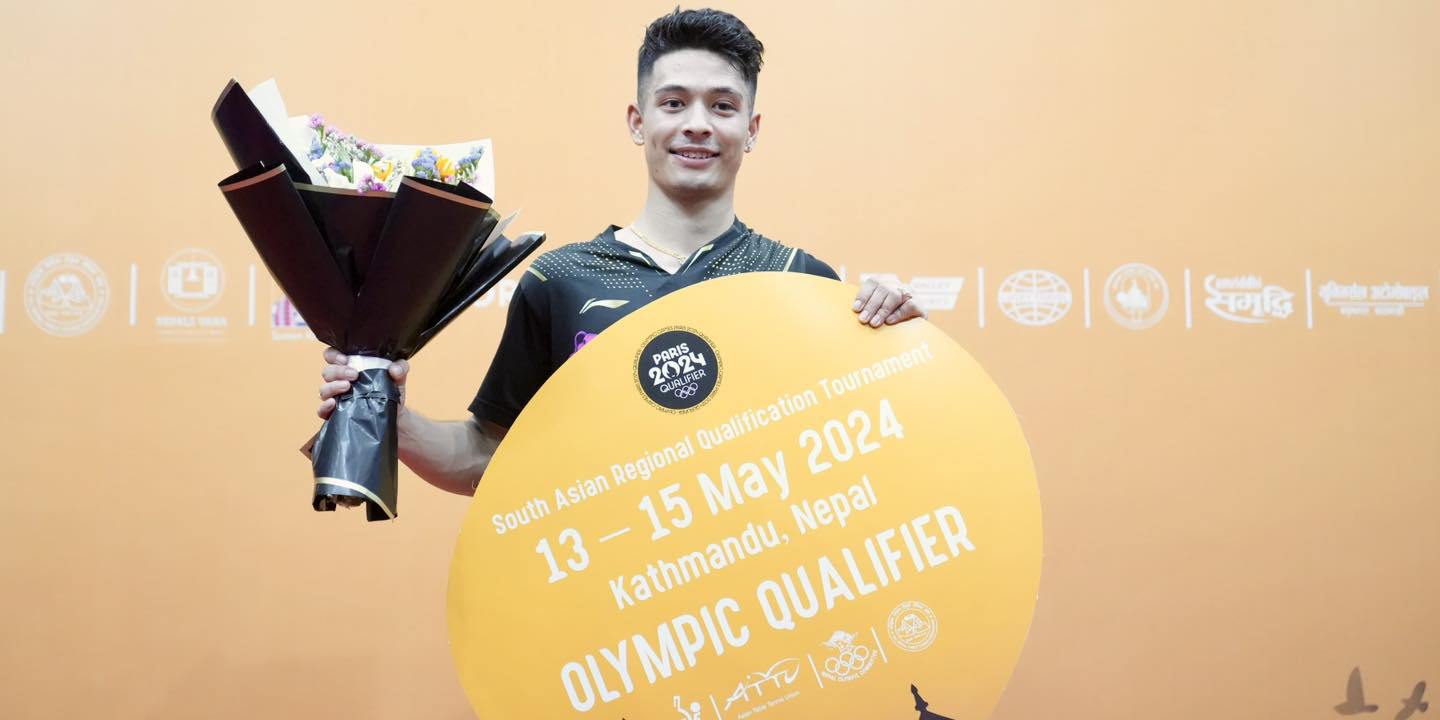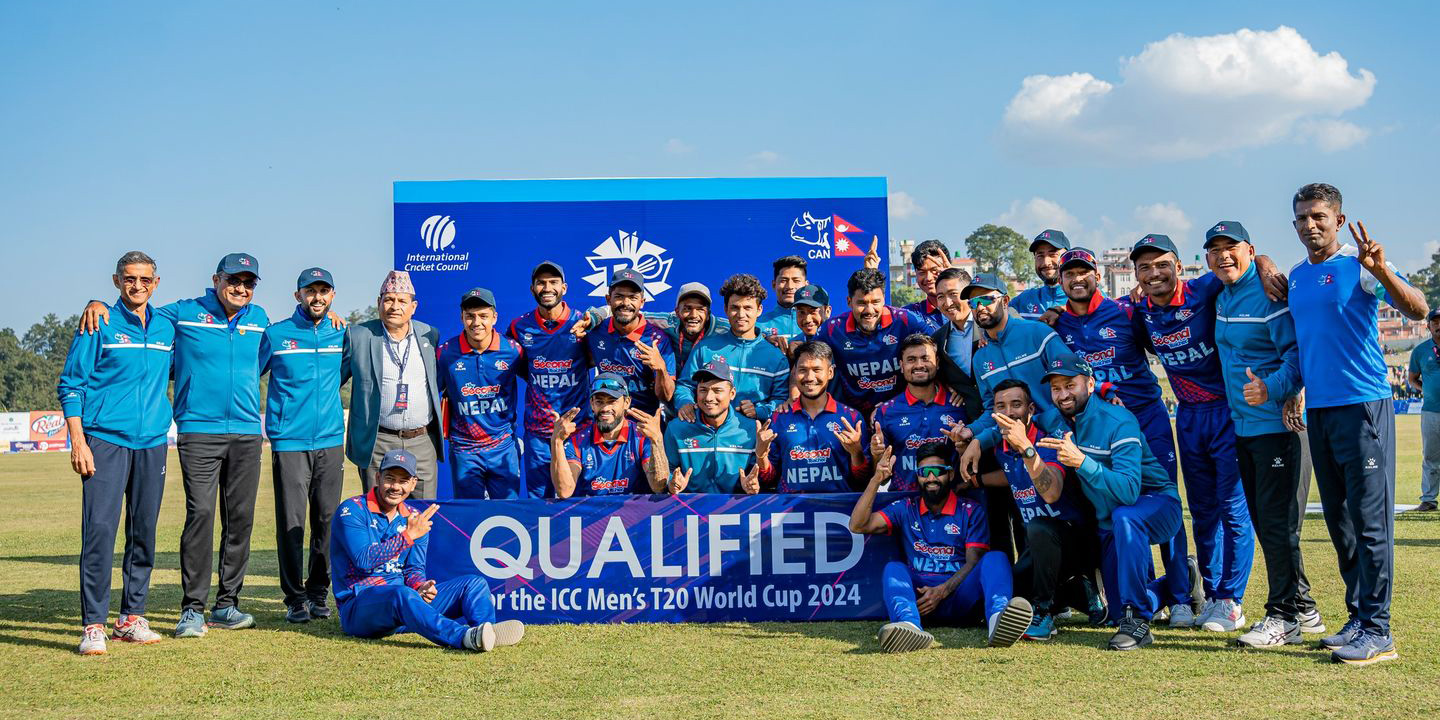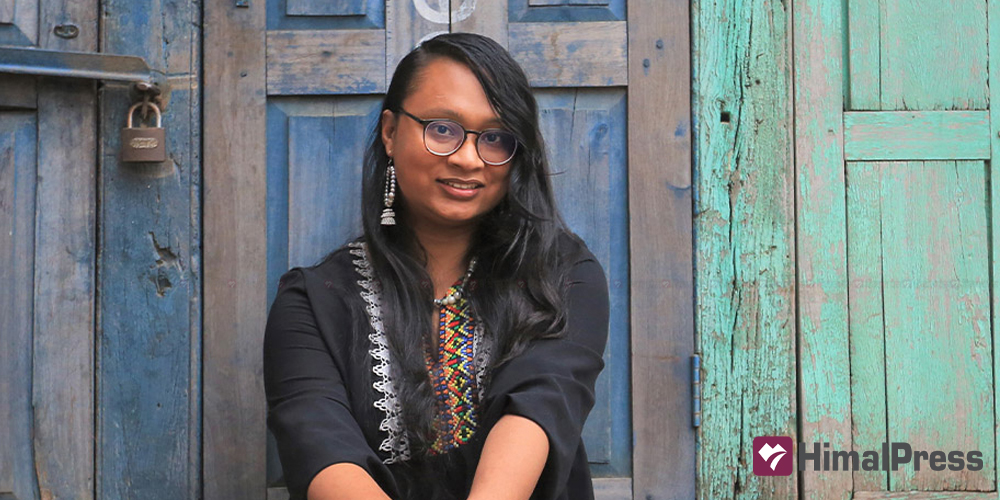
KATHMANDU: On May 23, Rukshana Kapali tweeted – ‘I am disappointed because of the insensitivity of the Supreme Court. I have no words to speak. I am in deep pain. I have not been able to commit suicide’. The tweet titled ‘Serious Attention’ was posted at around 10 pm.
“It was very difficult to bear at that time,” she said. “I felt helpless and suffocated. Then I poured my heart out on Twitter.”
Rukshana was not afraid that she would be considered weak if she showed her pain to the world. She decided to write her feelings on social media because she felt everyone should know about the suffering caused by the state’s inaction. “I am a human, and just like every human being, I go through a multitude of emotions,” she said. “There are times when I feel the weight of depression, moments of pure happiness, instances of sadness, and periods of vulnerability. If I don’t vocalize the challenges I’m encountering, who else will help shed light on them?”
After her tweet, several friends and relatives reached out to her. Some advised her to have patience, while some encouraged her not to give up and to continue fighting.
Rukshana’s sense of helplessness that night did not arise without a reason. It was a culmination of a long and arduous journey marked by relentless struggles. Her battle was the quest for identity and the struggle for education. Being a transgender woman, Rukshana said that both the Supreme Court and the entire state apparatus have overlooked not only her plight but also the challenges faced by countless other Nepalis like her.
She is a student of linguistics and law. Although she is a student of Tribhuvan University, she has not yet been issued a registration number yet. “If I don’t have a registration number, my studies won’t be deemed official,” she said. “This means I won’t be able to obtain an educational certificate.”
This is what Rukshana’s has been fighting for. In 2020, she filed a writ petition at the Supreme Court after she was denied a registration number by the state-owned university. However, since then, she has been faced with a continuous cycle of delayed hearings. “That’s what happened on that day,” she explained, referring to the reason behind her tweet on the night of May 23.
On May 22, the Supreme Court had scheduled a hearing for her case. Her case was listed as the eighth on the daily cause list. “I kept waiting with the hope that the case would be heard after lunch,” she shared. Unfortunately, her turn never came. When a case is not heard, a new date is typically given, often with a gap of six months. The apex court followed the same pattern in Rukshana’s case.
“But I didn’t have that much patience,” she said. Rukshana pleaded with court officials to provide her with an earlier date. Eventually, she received a new date, which is now set for June 18.
She had heard about the Supreme Court passing favorable judgments for the sexual and gender minority community. With that hope in her heart, she approached the doors of the Supreme Court. However, she soon realized that the process is far from easy. It is a process that forces people to endure hardships and, at times, makes them feel defeated, she added.
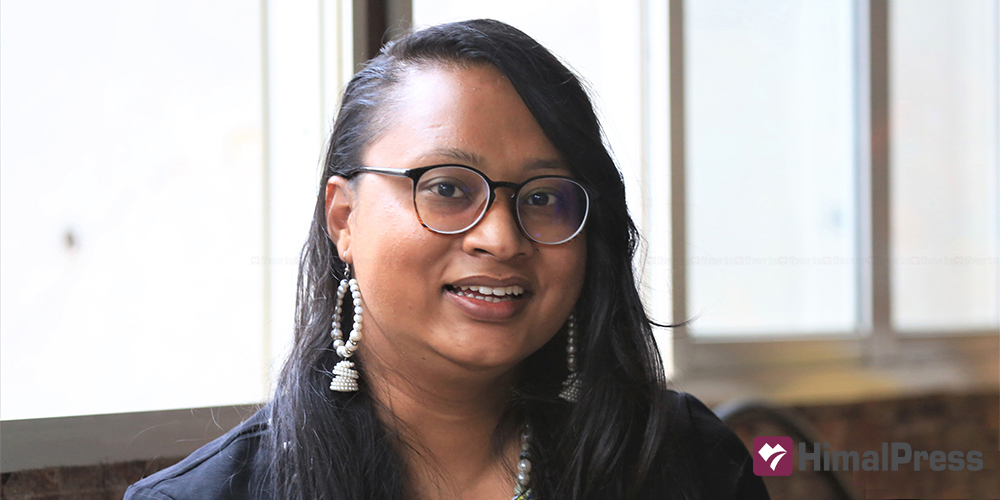
Rukshana openly shares her struggle with anxiety. “It is a consequence of the discrimination, humiliation, and rejection that I have faced since childhood,” she said. “In the beginning, I had to fight with myself. Being a part of this society, I felt it was wrong for a boy to have feelings traditionally associated with girls. I did not understand my own feelings.”
Growing up as a male child in Patan, Lalitpur, Rukshana struggled to comprehend the woman within her. During that time, she often harbored negative thoughts about herself. These experiences occurred around a decade ago when she was just 14 years old.
Rukshana reflects on the limited social landscape during her upbringing. “There was only physical space. My primary world revolved around the small circle of school and home. Even when going on vacations, the destination would typically be my maternal home,” she said. “I didn’t meet anyone like me in this narrow space.” Rukshana shared that she never came across anyone with similar feelings to hers even in Nepali television channels. Even in Indian channels, the portrayal she witnessed misrepresented individuals like her, often depicting them begging for money or dancing on trains. These misrepresentations reinforced her belief that having feelings aligned with those of a woman was inherently wrong.
However, one day, Rukshana’s inner turmoil reached a tipping point. She asked herself, “Am I going to live like this forever?” On that day, her heart rebelled against the suppression she had endured. Rukshana realized that she could no longer continue living lost and hidden. She made a firm decision to gradually open up about her true self and share her story with others.
She started with her friends as it was difficult to tell her parents first. One person at a time, her circle of confidants expanded, growing from two to four people, then to a group of friends, and eventually encompassing her entire class and school community. She was in Class 9 at that time.
At that time, she wanted to change her name to ‘Rukshana’ to align with her true identity. However, the school administration did not approve her request, citing concerns that it would bring disgrace to the school. Rukshana experienced an identity crisis for the first time. “Maybe if my name had been changed then, the problems I am facing today wouldn’t have occurred,” she added.
Following this setback, Rukshana had to confront daily challenges related to her gender identity. In the midst of the typical teenage years filled with play, meals, and enjoyment, thoughts of suicide began to surface. However, throughout this tumultuous period, her mother stood by her side. “My mother has supported me right from the beginning,” Rukshana said. “Eventually, my father also came to understand me. Over time, relatives and neighbors began to grasp my situation. While not everyone may comprehend, it is sufficient if parents accept and support their child’s identity.”
After completing the SLC examination, Rukshana felt a sense of liberation from the confines of her previous school. However, she soon encountered new hurdles in life. The prospect of attending larger colleges in Kathmandu heightened her concerns about potential bullying or mistreatment.
Rukshana enrolled in AIMS Academy to pursue humanities. She mustered the courage to confide in the headmaster, TR Dhakal, sharing her truth and struggles. The words spoken by Dhakal Sir still resonate in her ears: “You are a student, your job is to study.” He advised her not to be swayed by distractions and to find joy in her studies. Rukshana embraced these words as her guiding principles. In this supportive environment, she was able to do something she couldn’t during her SLC days – change her name. She successfully changed her name and began studying as Rukshana.
When Rukshana turned 16, she accompanied her father to obtain her citizenship certificate. While she was allowed to keep her chosen name, her gender was categorized as ‘Others’. “They told me ‘We can change your name, but cannot grant citizenship as a woman’,” Rukshana shared. Consequently, her citizenship certificate indicates her gender as ‘Others’.
Similarly, when she obtained her passport based on her citizenship certificate, her gender was also listed as ‘Others’. The issue of being categorized as ‘Others’ persisted in various situations, such as the creation of vaccination cards during the Covid-19 pandemic or obtaining a voter ID .
Rukshana had nurtured a childhood dream of studying linguistics. In 2017, decided to enroll at Tri Chandra Campus. However, the college authorities observed that her SLC certificate indicated a male student’s name, while her Plus Two certificate reflected a female student’s name, and denied her admission. Fortunately, a recommendation letter affirming that both names belonged to the same person helped her secure admission. Nevertheless, couldn’t obtain a registration number from Tribhuvan University.
Rukshana managed to pass the first-year examination. However, the persistent challenges with acquiring the registration number took a toll on her mental well-being. The anxiety became overwhelming, and she found it impossible to take the second-year examination. During that time, Rukshana received an opportunity from Amnesty International Nepal to pursue a six-month human rights course in York, UK. Excited about the prospect, she embarked on the journey. However, she stayed there for only three months. “That was the first time I was living away from my family. I started feeling homesick. Covid also started at that time. I decided to come back,” she added.
Rukshana expresses deep sadness and disappointment at the neglect she has experienced from the state. She believes that the authorities intentionally ignored her issues and that if they had been willing, the problems could have been resolved.
Upon her return, Rukshana decided to study law. This time, she applied to Purbanchal University. However, her application was rejected. It was at this point that she considered seeking legal recourse to address her ongoing challenges.
Rukshana has left no stone unturned in her quest for a solution to her predicament. She submitted applications to various departments, committees, commissions, the Ministry of Education, and the Prime Minister’s Office. From local government bodies to the Office of the President, she reached out to every possible avenue for assistance. “Since nobody helped me, I decided to file a petition at the Supreme Court,” she added.
She has filed 13 cases at the Supreme Court and 30 cases at the Patan High Court. “Not all these cases are mine. I have also taken up cases on behalf of my friends. Twelve cases are of public concern to address the issues of the transgender community,” she added.
Rukshana and her friends even drafted the “Sexual Identity Bill 2022” to address the rights and issues faced by transgender individuals. “We submitted the bill to the relevant authorities. But no substantial progress has been made in its implementation,” she added.
Rukshana expresses deep sadness and disappointment at the neglect she has experienced from the state. She believes that the authorities intentionally ignored her issues and that if they had been willing, the problems could have been resolved. “The insensitivity displayed by all three tiers of the government has left me feeling tired, angry, disappointed and in profound emotional pain.”
She has lost her 10 years trying to get a legal identity. “This is an irreparable damage done by the state,” she said. “I don’t know how much longer I will have to endure this. Can I not live as an individual in my own country? Can I not be recognized and valued as a human being beyond the confines of gender labels such as women, men, or others?”

